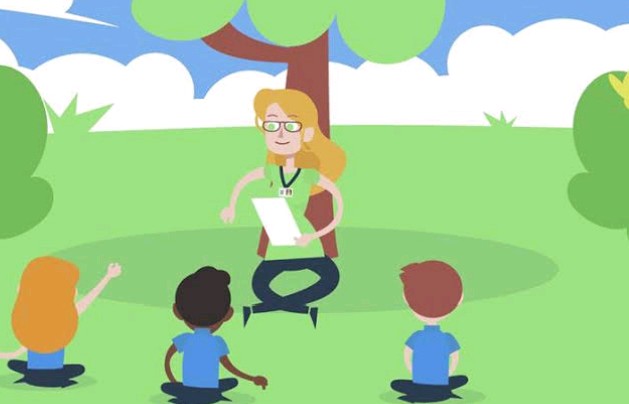An outdoor classroom refers to spaces outside the traditional classroom where learning can take place. Learning outside is not only beneficial to students' wellbeing, but it’s a great way to renew their enthusiasm for learning. There are many benefits for using outdoor classrooms, as spending time getting to know the world outside is fundamental for children's development.
What Does an Outdoor Classroom Look Like?
Outdoor classrooms can take many forms. They can be a covered area outside the classroom or be in a place where children are surrounded by nature. As long as learning is taking place in an outdoor area, children are benefiting from an outdoor classroom.
There are several characteristics of an outdoor classroom:
Children are safe and are free to move around outside, or inside if they wish.
There are activities for children to participate in while outside. These may include activities that are traditionally practiced indoors.
There are opportunities for children to be physically active in the outdoor classroom environment. Likewise, there are activities for children wishing to learn while stationary.
Children are encouraged to play and direct their own learning, with the supervision of a teacher.
Children have the opportunity to interact with nature.
What are the Benefits of an Outdoor Classroom?
Children may experience many benefits of learning in an outside classroom environment, as opposed to indoors. These can be physical, mental and emotional.
One of the physical benefits of the outdoor classroom is the development of a healthy attitude towards living an active lifestyle. By playing outdoors regularly children are encouraged to engage in regular physical activities with their peers. By enjoying outdoor play, children begin to establish healthy habits that could help reduce their chance of struggling with health conditions such as diabetes and obesity.
Outdoor classrooms also provide children with opportunities to develop their social skills and emotional literacy. By playing with their peers they polish their communication skills and build their ability to interact well with others. They can also develop social bonds and friendships through their shared experiences and enjoy building relationships in an easygoing environment. These friendships can also help students while working in their indoors classrooms and make their overall school experience more enjoyable.
Being exposed to nature is also a fun way to nurture childrens’ sense of enthusiasm for the world around them. Getting some sun and becoming familiar with the outdoors helps children appreciate the value of the natural world and can lead to some educational conversations about animals and nature.
